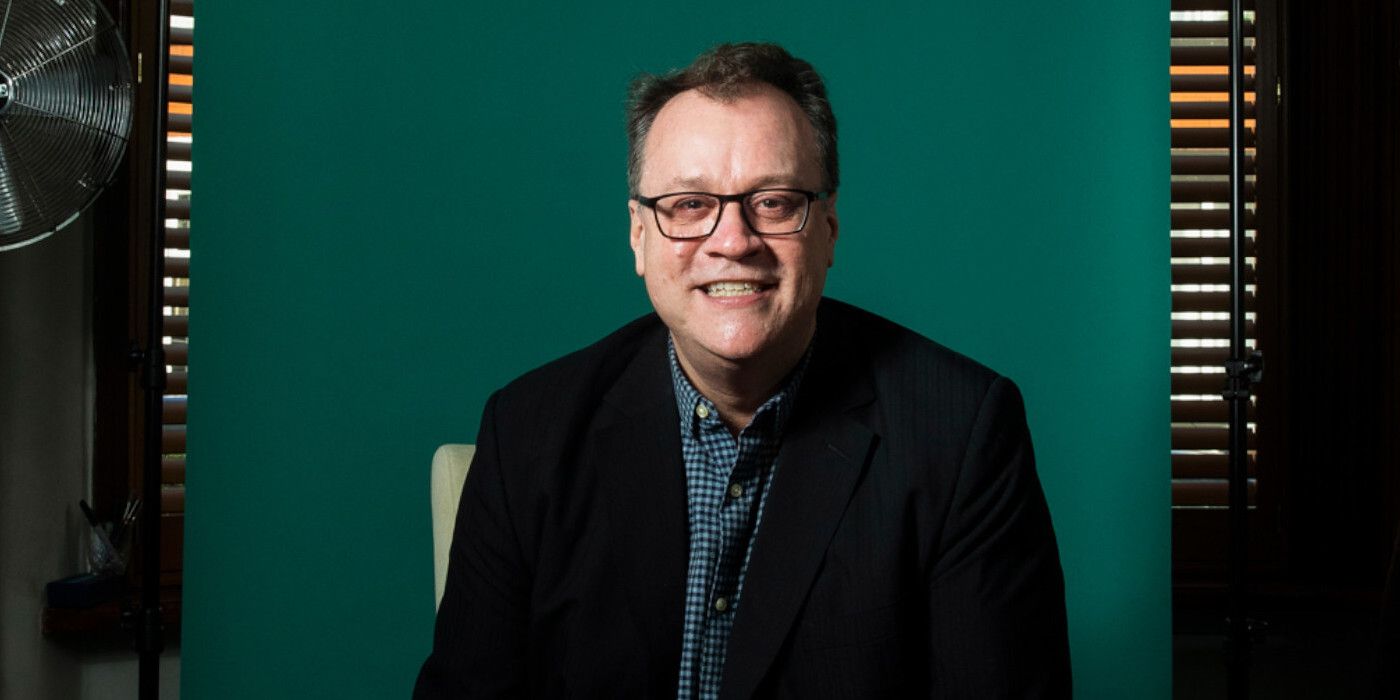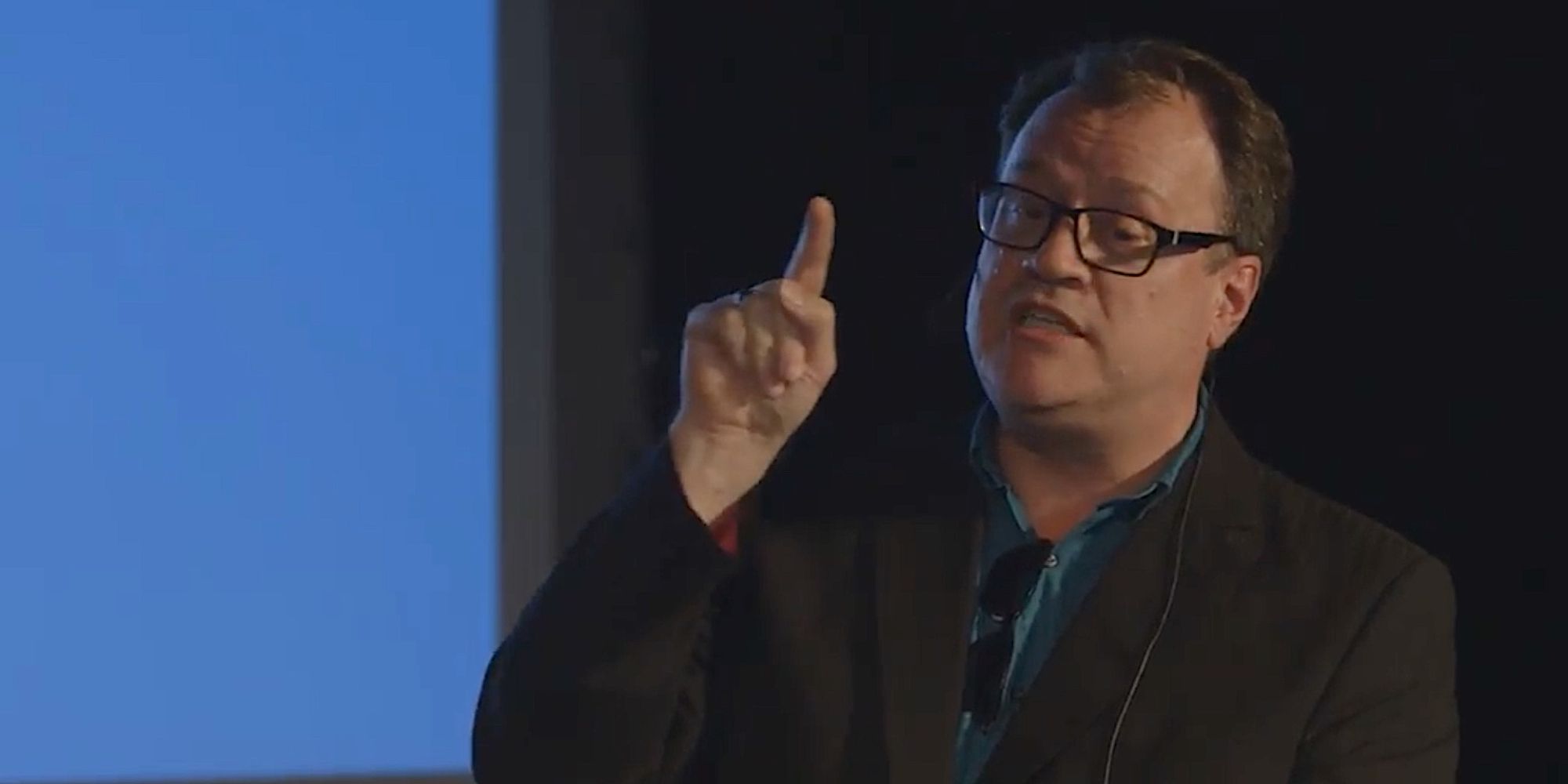
Last week saw the shock announcement that Russell T Davies would return to Doctor Who, replacing current showrunner Chris Chibnall to guide the sci-fi series through its 60th anniversary and beyond. However, it is not just the future of Doctor Who that is at stake, as this move may be an attempt by the BBC to prevent being dismantled.
Although it does have commercial ventures, the British Broadcasting Corporation is funded primarily via a license fee, which every UK household pays yearly in order to watch broadcast television. The Conservative Party, which has been in government since 2010, has questioned the value of the TV license in modern times. During the 2019 general election, Prime Minister Boris Johnson even indicated that the license fee could be scrapped entirely, taking the BBC out of public ownership in favor of a subscription service or other commercial funding.
Davies has publicly opposed such proposals. Speaking to Radio Times in 2015, he lambasted the notion of the BBC as a subscription service like HBO, noting that for almost the same price as a TV license, the American broadcaster "gives you a couple of good hours of drama a week and nothing else." Despite providing a multitude of channels, the number of new shows being broadcast by HBO pales in comparison to the number of repeats, with none of the factual material currently offered by the BBC.

In other words, a privatized BBC would be unable to fund the huge amount of content it currently produces. It would not have the resources to offer news programs and other factual shows, nor be able to maintain its array of radio channels. Without the license fee, the corporation in its current form would cease to exist, becoming just another business answering to shareholders instead of the British public. This is a fate which Davies has declared inevitable, stating in the same interview that the battle for the BBC "has been lost."
It is thus significant that the BBC has once again placed Doctor Who in the care of Davies, who in 2005 made a global hit out of a show that was canceled in 1989. Earlier this year, he told journalist Paul Kirkley that Doctor Who should become a vast empire like the Marvel Cinematic Universe, even suggesting "a Doctor Who channel." Despondent as he may be about the BBC's future, he may have been rehired to significantly increase the value of the TV license, rewarding the British taxpayer with a vast multimedia franchise.
Alternatively, this could ensure that the BBC survives its transition out of the public's hands. For the first time, the show will be co-produced by a third party in the form of Bad Wolf Productions, who collaborated with the BBC and (ironically) HBO to make His Dark Materials. This doesn't only allow Bad Wolf co-founder Julie Gardner to return as Doctor Who's Executive Producer, it also turns the show into a brand that can be loaned to other companies, a necessity if the BBC ever loses the ability to produce programs in-house.

Whether Davies can prevent this outcome or not, it is inevitable that his reappointment to Doctor Who will continue his criticism of the Conservatives. Beyond interviews, his recent shows like Years and Years and It's a Sin have used the past and the future to satirize British politics, the latter even featuring one of its protagonists urinating in the coffee of 1980s PM Margaret Thatcher. Carrying this spirit into Doctor Who could provide the BBC with a voice against its biggest detractors, proving to those who keep it running that it can perform a public service: making the powerful accountable with television drama.
It remains to be seen if that will convince the UK populace to reignite the fight for the BBC. When asked about its future in January by Esquire, Davies reaffirmed that he had given up, giving the corporation seven years before privatization destroys it. Perhaps he has changed his mind in the months since, but regardless, handing the TARDIS key back to Davies gives the BBC the means to prevent its end as a public service broadcaster -- or die trying.
0 Comments